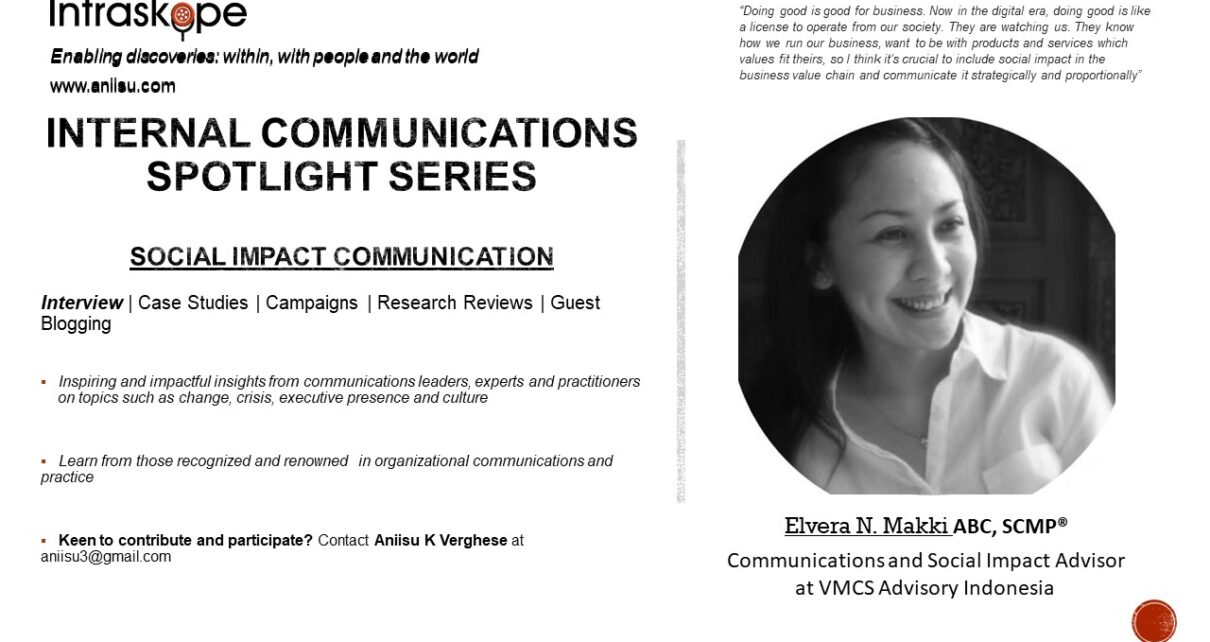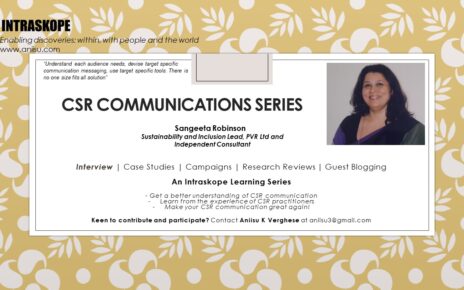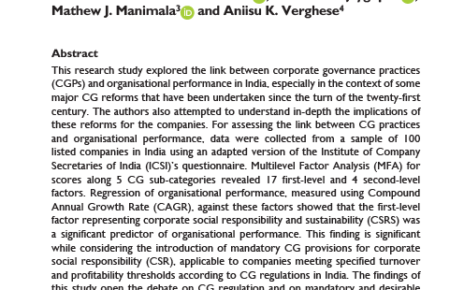Welcome to the 14th edition of Intraskope’s Spotlight Series featuring Elvera N. Makki, Founder and CEO of VMCS Advisory Indonesia. VMCS is a Communications and Social Impact consulting firm based in Jakarta. It serves clients in many different areas, including Public Relations, Media Relations, Crisis Communications, Strategic Corporate Communications, as well as Digital Services like Digital PR, Digital Marketing, data-driven PR, and for sure on Social Impact initiatives. Elvera also serves as President, Int’l Association of Business Communicators – Indonesia Chapter.
About Intraskope’s Spotlight Series
In this series I interview key thought leaders on topics interrelated with internal communications such as culture, crisis, change, executive presence and leadership. The goal is to help unravel why they matter, what can leaders and communicators learn from experts and how we can put insights to practice. Watch these short interviews and get better at understanding these key topics and how you engage with internal communications.
This conversation with Elvera covers a very important topic that matters to all organizations – the value of social impact and communicating it in a way that is balanced with authenticity and empathy.
“Social impact communication should be part of strategic communication planning. The messaging should be aligned with the overall communication objectives. It depends on the nature of the business; communicating social impact should be correct in terms of momentum and the proper context”, says Elvera.
Elvera is multifaceted and a highly accomplished communicator and leader. Apart from being a 2019 SCMP® Certified (Strategic Communication Management Professional) by GCCC, she is also the 2018 Eisenhower Innovation Fellow, Eisenhower Fellowship, named “Top 100 Most Impactful CSR Leaders – Global Listing” by World CSR Congress in 2017, founded Taman Baca Anak Lebah, BookSTech- Books, Storytelling, & Technology, and Semangati Guru in 2009 and served as a Lecturer at University of Indonesia, Faculty of Social and Political Science, Communications Department, International Dual Degree Program. She has over 20 years of experiences in reputation management (corporate communication, media relations, external affairs, issue/crisis management, employee communications, and CSR/citizenship).
Interview
1. Organization today talks of corporate purpose and social conscience. What is the relevance of social impact?
- For institutions, social impact means we’re doing business that give added values to our societies, has a more precise purpose of helping make a better world, do good to our environment in a sustainable way, and focus on the outcomes only on the output.
- Meaning, when we help our clients do social responsibility, we comprehensively think of a long-term initiative that will be beneficial not only for the growth of the business but also for society.
- We want to make sure that the good things that we do are impactful to society. Give them a life-changing experience and move them from one point to another, which is better for their lives.
- And when we think about it that way, all the strategy and approach will evolve around that impact we want to achieve. In making a plan, our financial, resources, creativity, and implementation will be aligned with that particular impact goal.
- And to do that, the social impact initiatives should support and aligned with the business goals. It should be complementary to the bottom line of the business. That’s what we want to make sure of happening when our clients work with us.
2. How must social impact be communicated? Does communicating too much make it sound boastful? Does communicating too less creating a sense of apathy?
- It should be part of strategic communication planning. The messaging should be aligned with the overall communication objectives. It depends on the nature of the business; communicating social impact should be correct in terms of momentum and the proper context.
- Yes, I agree that too much in everything is not good, including communicating our good deeds. That’s why it should be an integral part of corporate communication to ensure it’s done in the right moments, delivered by the right leaders, and engaging to the right stakeholders, be it consumers, NGOs, community, media, or the respective government.
- Continuous monitoring and measurement of our communications are also crucial to see whether we’re overpromoting or we need to share more stories.
3. What must organizations consider while communicating social impact?
- First and foremost, the initiative should be aligned with the nature of the business so that it’s complementary to the bottom line of the organization.
- Meaning, the type of initiative should be relevant to the organization. They can develop the program creatively, but the DNA is the same. For example, if the business is FMCG, the best beneficiaries are families like mothers and kids. Then the activity can be around solving the most significant problems around families like poverty or starvation. Another example, if the organization is a financial institution, so they can do financial literacy programs in rural areas, teach them how to deal with high-interest rate loan, how to save and invest, how to manage cash flow, etc.
- After that, to make it more relevant and attract media attention, the communication content should be data-driven to be more meaningful; therefore, it will create more engagement to our target consumers. For example, we provide infographics and data about the problems, why it is necessary, why we do what we’re doing, what impact we deliver to society when we’re doing it, and what happened if we ignore the situation.
- So communicating social impact should make sense to the key stakeholders, and not only that, it’s good if we can also increase empathy among our audience. which means, create more engagement, trust, and credibility of our corporate brand.
4. What advice do you have for leaders and communicators to put social impact at the heart of the communication?
- Doing good is good for business. Now in the digital era, doing good is like a license to operate from our society. They are watching us. They want to know how we run our business, want to be with products and services which values fit theirs, so I think it’s crucial to include social impact in the business value chain and communicate it strategically and proportionally.
5. How can corporate social responsibility professionals and communicators get better storytelling social impact?
- We should be able to address the problems in society. Open our eyes and ears and our heart to understand what’s going on with our community.
- And how can we, as an organization, play a role and contribute to helping solve those problems
- What creativity and innovation are needed to support our community?
- The best storytelling comes from the beneficiaries. When they truly feel the change happening with their lives because of our efforts, that would be the best storytelling coming out from their mouths.
6. What is the future of social impact communications?
- As the demand increases from our society, from our stakeholders to do good and impactful, the future of social impact communications will be more critical.
- Communications professionals need to include the social impact on their overall communications strategy, as it will help the organization increase its bottom line. It’s an indirect linkage, but credibility, trust, and engagement are built from few things, one of which, through social impact activities.
Watch the complete video interview on YouTube or read the complete transcript above.
Missed the earlier episodes? Watch them here: D. Mark Schumann (Culture), Peter Yorke (Executive Presence), Sia Papageorgiou (Leadership Communications), Dianne Chase (Strategic Storytelling), Gloria Walker (Communication Planning), Rebecca Sangster-Kelly (Stakeholder Management), Ray Walsh (Localizing Employee Communications), Prof. Matt Tidwell (Reputation), Geri Rhoades (Manager Communications), Erik K Meyers (Business Acumen), Russell-Olivia Brooklands (IC Practice Governance), Paul Barton (Public Speaking and Business Communication) and Cyrus Mavalwala (Digital Communication).
You can also look up the ongoing Intraskope’s Spotlight on Internal Communication Series featuring practitioners from around the globe sharing best practices and perspectives.
Liked the interview? Post your comments and share it with your network.
Keen to participate in the ongoing series on Personal Branding, Crisis Communications, Internal Communications or CSR Communications? Drop me a note at [email protected]
Here are Internal Communications resources you can use:
- Learn: Internal Communications Fundamentals Course on Thinkific or Udemy
- Internal Communications Series: https://forms.gle/KcqmPzLwq7NQi5Km6
- Chat with Aniisu – Internal Communications: https://www.instamojo.com/intraskope/connect-with-aniisu-60-minute-personalized-d/?ref=store
- Internal Communications workshops: https://bit.ly/2zdBRl1
You can also visit my website www.intraskope.com and You Tube channel to know more about my work.
#IC #socialimpact #socialcommunication #sustainability #NGO #stakeholder #strategy #socialvalue #businessalignment #digitalimpact #socialROI #doinggood #community #socialbottomline #credibilty #internalcomms #communications #internalcommunications # #covid19 #elveranmakki



